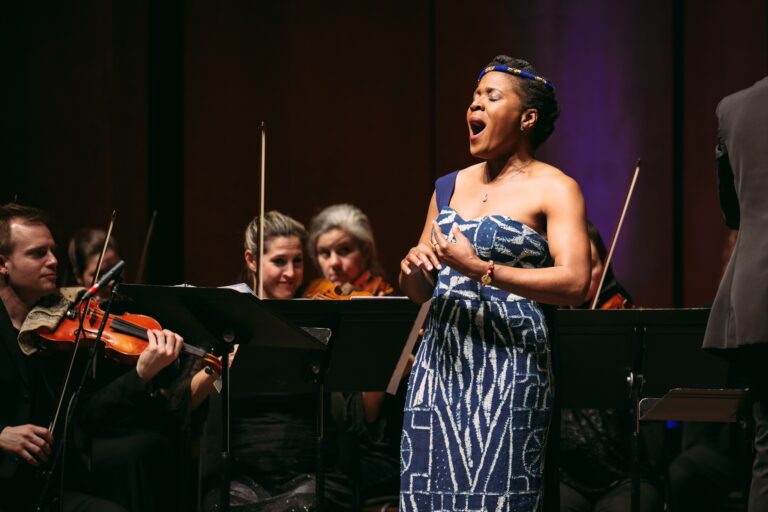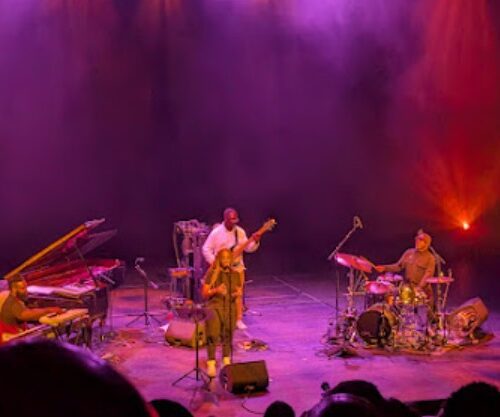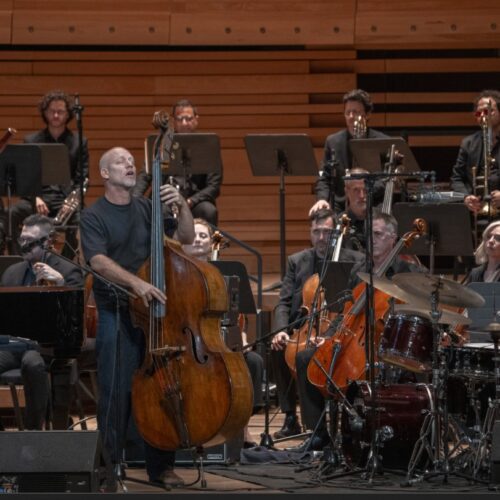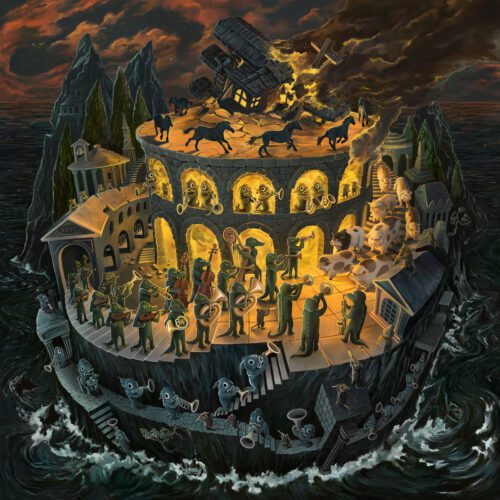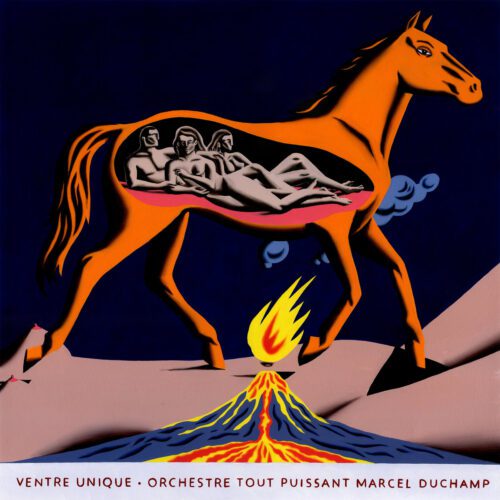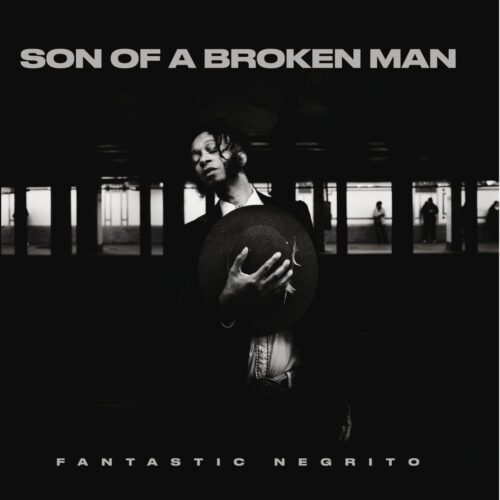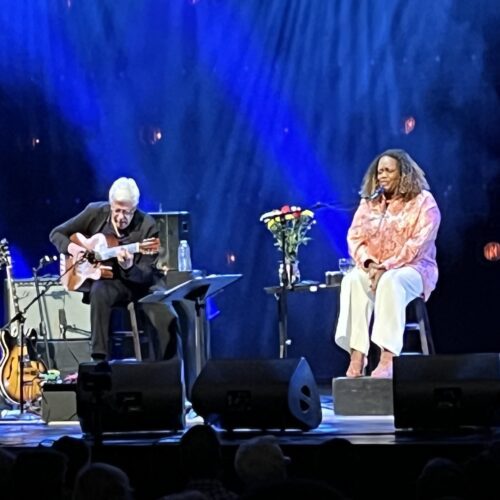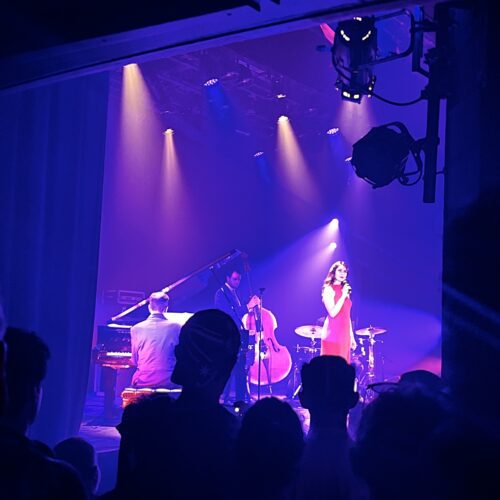Last night saw the Orchestre classique de Montréal’s concert Échos lointains d’Afrique (Africa’s Distant Echoes) featuring soprano Suzanne Taffot. The programme for this evening, under the musical direction of Kalena Bovell, an American conductor originally from Panama, included works by Afro-descendant composers: the British Samuel Coleridge-Taylor, the Americans George Walker and William Grant Still, the Quebecer David Bontemps and a number of Spirituals.
The main course of the evening was the creation of David Bontemps’ song cycle, Le deuil des roses qui s’effeuillent (Mourning for the roses that are falling apart). This evocative title comes from the pen of Haitian poet and author Jacques Roumain, whose 80th birthday we were commemorating in 2024. In nine texts beautifully set to music by Bontemps, soprano Suzanne Taffot has brought to life subtle, warm, sometimes melancholy landscapes in a musical language steeped in the stylistic roots of the tiny Caribbean country. Sinuous lines, swaying, syncopated rhythms, but in a light, sober sound architecture. By paying this fine tribute to his own Haitian roots, Bontemps has confirmed his status as a rising star of modern Quebec composition. That said, we would have appreciated it if the texts had been projected onto the large empty wall behind the orchestra, so that we could have fully immersed ourselves in the beauty of this inspiring poetry, the vocal writing not always allowing the words to blossom with all their potential clarity (and the dim light preventing us to read them in the paper program). Suzanne Taffot’s voice is beautiful, with a wide register that demonstrates a natural ease in all pitches.
There were lovely Novelletten by Coleridge-Taylor, a British Romantic composer of Sierra Leonean origin, and very pleasant Danzas de Panama by William Grant Still, with their simple melodies treated with sober refinement. George Walker’s Lyric for Strings was perhaps the most impressive, with its restrained, elegantly constructed pathos. A sort of Barber Adagio, more sparing of affect.
A few moments of pure vocal grace rounded off the evening when Suzanne Taffot returned to the stage to perform four spirituals, warmly arranged by Moses Hogan and Hugo Bégin. The audience was won over, if it hadn’t already been, by Deep River, Give Me Jesus, Sometimes I Feel Like A Motherless Child and He’s Got the Whole World in His Hands.
Kalena Bovell led the ensemble with a sincere commitment, in a direction combining precision and emotional suggestiveness.
A highly successful evening in front of a packed Pierre-Mercure Hall (which should be enough to call into question certain recent statements criticising programming based on diversity in classical music).
